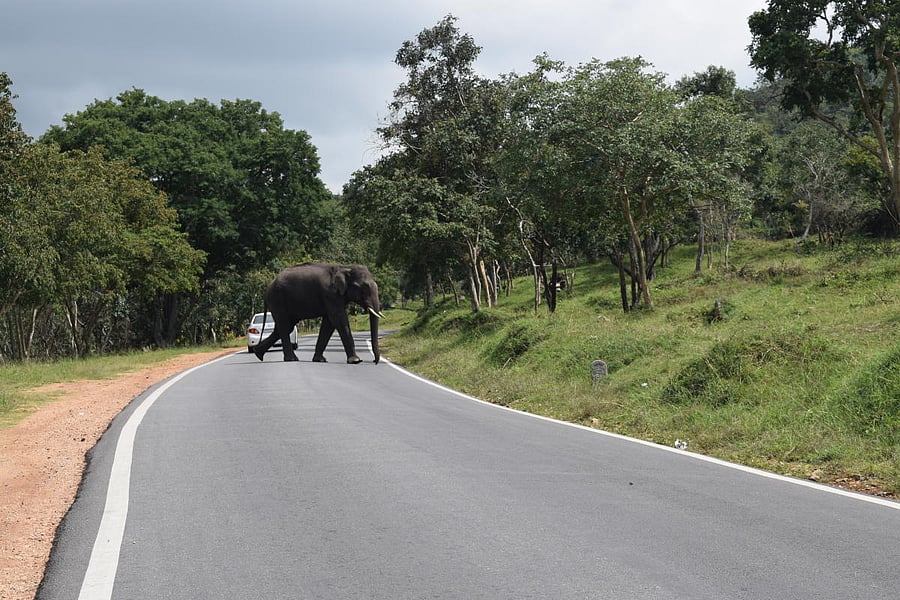Politicians pandering to vested interests has become an accepted norm but, in a rare departure, the Karnataka government had steadfastly repelled all pressure from powerful lobby groups to permit movement of traffic at night through the Bandipur National Park. The dusk-to-dawn ban on vehicles was imposed in 2009 following the large number of animal deaths on the national highway cutting through the park, which connects Karnataka with Ooty in Tamil Nadu and Wayanad in Kerala. Bandipur, which was notified as a tiger reserve in 1974, forms the largest protected area in South India along with adjoining Nagarahole, Mudumalai and Wayanad sanctuaries. The forest is home to several endangered species, besides being the largest elephant habitat in the country. Now, after many protracted legal battles, a final victory appears to be within sniffing distance with a Supreme Court-appointed expert committee unequivocally recommending that the ban be continued.
While Tamil Nadu, one of the affected parties, has not contested the ban, Kerala has been rather vociferous in its protest. Kerala contends that the restriction besides increasing travel time, has destroyed the economy of the northern districts of the state which are dependent on Mysuru and surrounding areas for their supply of vegetables, meat, pulses and cereals. But the state’s insistence on opening this particular route passing through the forest, while two alternative roads exist, has raised suspicion that some politicians could be acting at the behest of Kerala’s notorious timber lobby to whose nocturnal activities the ban supposedly put an end. Besides knocking on the doors of courts, Kerala has also led delegations to Karnataka seeking that the ban be relaxed, if not completely lifted.
With the number of wildlife deaths reducing significantly after the restrictions were enforced, the experts committee, comprising officers from the transport department of the Centre, Kerala and Karnataka and representatives of the National Tiger Conservation Authority, has favoured maintenance of status quo. The panel has also noted that there is a proposal to connect Bengaluru to different parts of Kerala without winding through protected areas under the Centre’s ‘Bharatmala’ project. With three substitute routes being available, it may be prudent to completely shut down the present highway in due course, not just at night, as movement of vehicles during the day, too, causes enormous stress to wildlife. While environmentalists are hopeful that the Supreme Court will deliver a favourable verdict, it might not be out of place to hope that the judges will be guided by the observations of former Chief Justice HL Dattu in one of the previous hearings, “Forests primarily belong to animals and tribals who reside in them and not to men who carve roads through them.”

